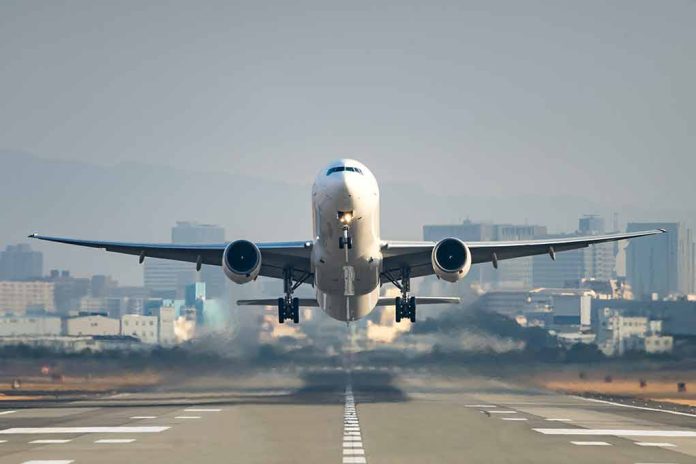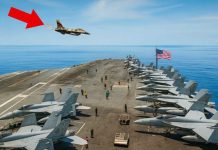
Army Black Hawk pilot Capt. Rebecca Lobach failed to follow her flight instructor’s warning just 15 seconds before a midair collision over Washington, DC that killed 67 people in January, according to a New York Times investigation.
Key Takeaways
- A New York Times report reveals that Capt. Rebecca Lobach failed to heed her flight instructor’s command to change course 15 seconds before colliding with an American Airlines jet near Reagan National Airport.
- The January 29 crash is considered the deadliest US air disaster since 2001.
- The helicopter crew reportedly cut off air traffic control instructions accidentally by pressing their radio button.
- The Black Hawk was flying above its 200-foot altitude limit during a simulated emergency evacuation mission with its tracking technology turned off.
- Transportation Secretary Sean Duffy has announced plans to modernize the air traffic control system with new technology and AI to prevent similar tragedies.
Communication Failures
The investigation revealed a series of critical communication breakdowns ahead of the January 29 collision. Co-pilot Andrew Eaves instructed Lobach to alter course to avoid the American Airlines jet, but his warning went unheeded, according to The New York Times. The warning reportedly occurred a mere 15 seconds before the crash.
Further complicating matters, investigators suggest the helicopter crew inadvertently blocked crucial air traffic control instructions by pressing their radio button at the wrong time, meaning they never heard that the commercial flight was “circling” in their vicinity.
The Black Hawk’s tracking technology had reportedly been deliberately turned off as part of a training exercise simulating an emergency evacuation of senior government officials from Washington, DC. Instead of relying on air traffic control guidance, Eaves and Lobach were reportedly using visual navigation, a practice that aviation experts have criticized as dangerous due to the high risk of human error.
Army Blackhawk pilot in DC crash failed to heed flight instructor’s command 15 seconds before deadly collision: report https://t.co/m644ktaSYt pic.twitter.com/0Ol6fCrx9k
— New York Post (@nypost) April 27, 2025
Multiple Contributing Factors
Brigadier General Matthew Braman noted that he believes no single factor was solely responsible for the tragedy. “I think what we’ll find in the end is there were multiple things that, had any one of them changed, it could have well changed the outcome of that evening,” Braman stated. The investigation also found that air traffic control staffing was below normal levels that night, with a single controller managing both aircraft after a colleague left early.
Adding to the risk factors, Defense Secretary Pete Hegseth previously indicated the helicopter crew had night vision goggles, which may have impaired their vision in the well-lit environment around Reagan National Airport. There was also a significant discrepancy in altitude reports, with the helicopter flying above its authorized 200-foot limit at the time of impact.
Response From Transportation Secretary
Transportation Secretary Sean Duffy has been outspoken about the need for change following the disaster. He criticized the practice of pilots visually navigating as “threading a needle” and pledged to implement reforms. Duffy has announced plans to enhance air traffic control systems with new technology and artificial intelligence designed to identify frequent close encounter “hot spots.”
The tragedy has brought renewed attention to safety issues at Reagan National Airport, where the National Transportation Safety Board has documented 85 near-misses or close calls. Duffy also indicated back in February that he consulted with White House Senior Advisor Elon Musk for advice on modernizing the air traffic control system.
The Federal Aviation Administration and National Transportation Safety Board are continuing their investigations, with a final report expected by early 2026.
Sources
- Army Blackhawk pilot in DC crash failed to heed flight instructor’s command 15 seconds before deadly collision: report
- Black Hawk Helicopter Pilot in D.C. Plane Crash Was Not in Medical Distress: Report
- Black Hawk pilot failed to heed flight instructor in moments before plane collision over DC: report
- Army Pilot Reportedly Failed To Follow Instructions Before Mid-Air Crash Killed 67 Over DC













